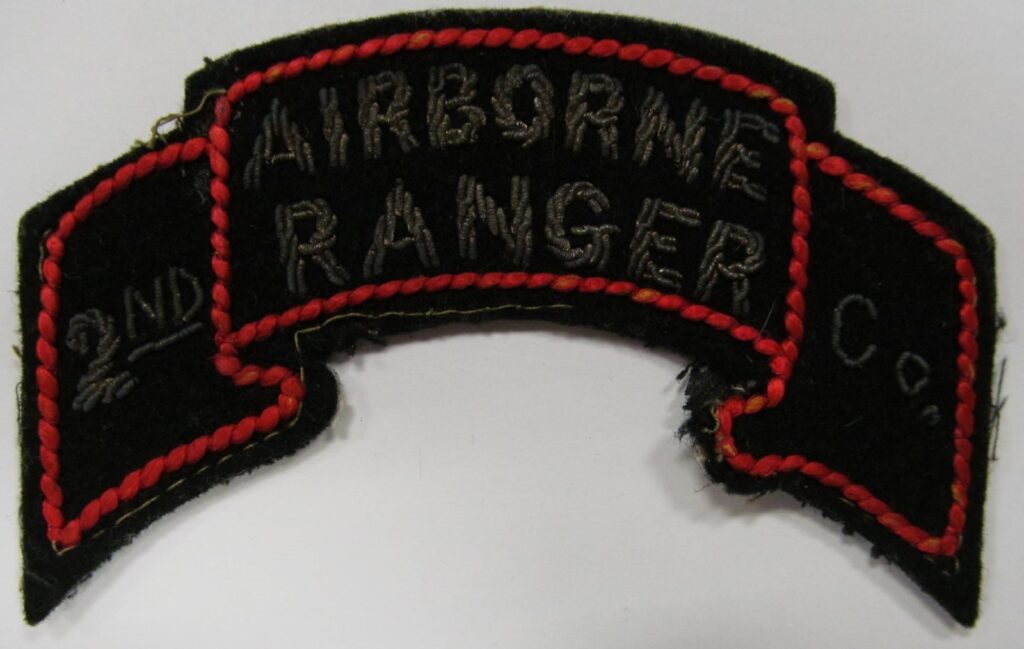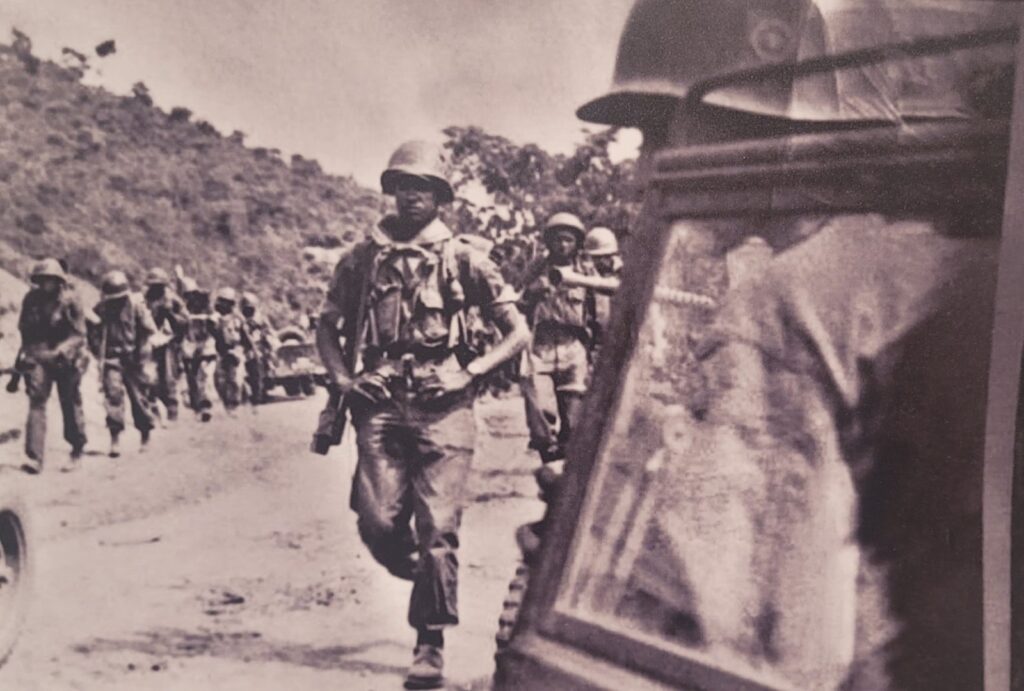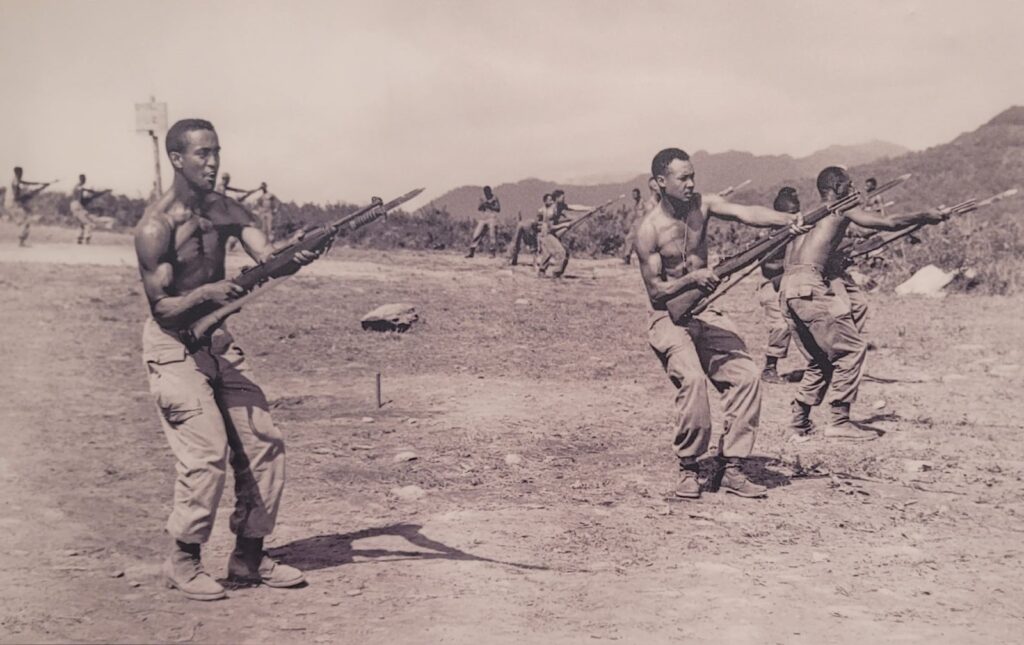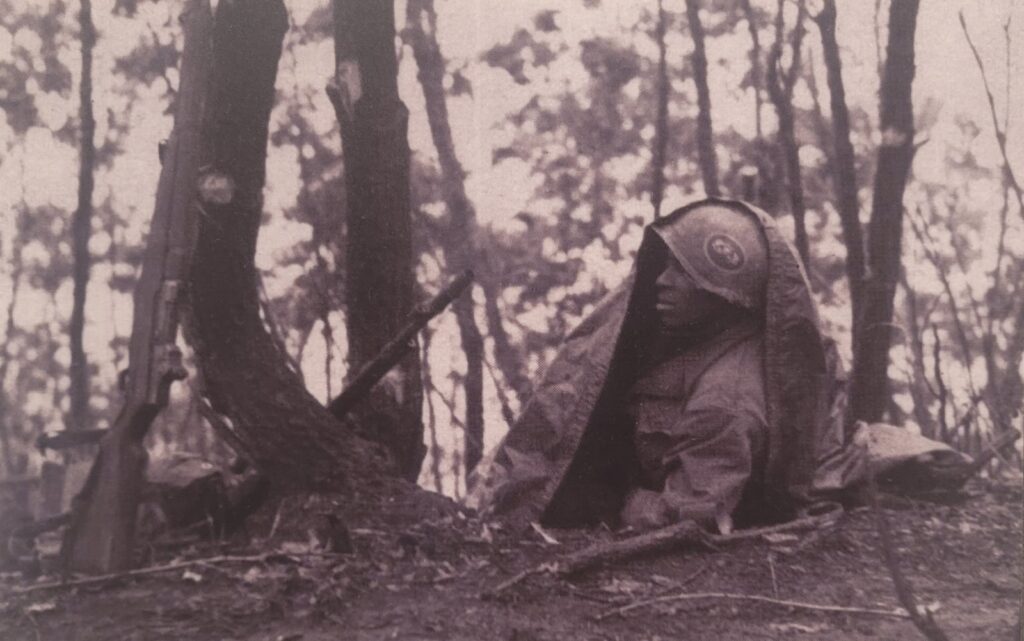The 2nd Ranger Infantry Company
On 26 July 1948 President Truman signed Executive Order 9981 abolishing segregation in the armed forces, “there shall be equality of treatment and opportunity for all persons in the armed forces without regard to race, color, religion, or national origin.” This executive order was not the reality for the men who served in the 2d Ranger Infantry Company (Airborne), the first and only all African American Ranger unit in U.S. Army history.
Activated 28 October 1950, the men of the 2d Ranger Infantry Company (Airborne) were primarily recruited from the former African American units of that participated in World War II. They trained alongside their all-white counterparts’ 1st, 3d, and, 4th Ranger Companies at Fort Benning, Georgia before departing for Korea in December 1950. The 2d Ranger Infantry Company (Airborne) successfully defended Hill 581 against a major Communist Chinese offensive; they inflicted hundreds of casualties without a single Ranger killed in that battle. The and 4th Ranger Companies conducted the only Ranger Company combat jumps of the war with the 187th Airborne Regimental Combat Team at Munsan-ni on 23 March 1951. The 2d Ranger Infantry Company (Airborne) inactivated on 1 August 1951. By December 1951, all Korean War Ranger Companies were disbanded and reassigned to other units throughout the Army.
This shoulder sleeve insignia, 2d Ranger Infantry Company (Airborne), worn by Sergeant Herculano Dias. It is in the Army Museum System and currently on exhibit at the U.S. Army Heritage & Education Center at Carlisle Barracks, Pennsylvania.

First Lieutenant Bernard B. Pryor of the 2d Ranger Infantry Company (Airborne) leading his platoon.

In April 1951, the 2d Ranger Infantry Company (Airborne) taught African American soldiers from the 7th Infantry Division the combat skills needed to survive the Korean War.

Sergeant Joe Oliver of the 2d Ranger Infantry Company (Airborne) awakens on Hill 581.




